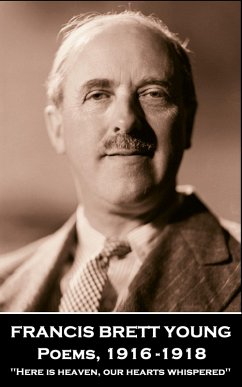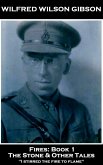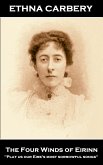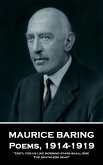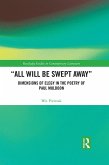Francis Brett Young was born on the 29th June 1884 in Halesowen, Worcestershire.
Young lost his mother, to whom he was very close, at 14. Several years later he entered the University of Brimingham to train as a physician and follow in his father's footsteps.
His medical career began on the steamship SS Kintuck and a long voyage to the Far East. This brought him the funds to purchase his own medical practice at Brixham in Devon, in 1907.
After his somewhat clandestine marriage in 1908 he made his first efforts at writing songs for his new wife which were later published.
During the First World War he saw service in German East Africa in the Royal Army Medical Corps but was invalided out in 1918, and sadly no longer able to practise medicine.
In 1919 he began the first of his Mercian novels before the couple moved to Capri for many years, although an ambitious schedule of travel from there included trips to South Africa, the United States and summers in the English Lake District.
His writing brought him much success and they returned to England in the late 20's and, although they still wintered in Capri, Italy's embrace of fascism meant looking for an alternate winter retreat.
His main project in these years was that of the epic poem 'The Island' a history in verse of Britian from the Bronze Age to the Battle of Britain. The entire edition of 23,500 sold out immediately.
Life, the winters and the dark years of wartime had further taken their toll on his health. In October 1944 he had a major heart attack. To help his recuperation they moved, after the war, to Montagu in South Africa where the climate was better suited to his health.
Francis Brett Young died in Cape Town on the 28th March 1954. He was 69. His ashes were returned to England and buried in Worcester Cathedral.
Hinweis: Dieser Artikel kann nur an eine deutsche Lieferadresse ausgeliefert werden.
Young lost his mother, to whom he was very close, at 14. Several years later he entered the University of Brimingham to train as a physician and follow in his father's footsteps.
His medical career began on the steamship SS Kintuck and a long voyage to the Far East. This brought him the funds to purchase his own medical practice at Brixham in Devon, in 1907.
After his somewhat clandestine marriage in 1908 he made his first efforts at writing songs for his new wife which were later published.
During the First World War he saw service in German East Africa in the Royal Army Medical Corps but was invalided out in 1918, and sadly no longer able to practise medicine.
In 1919 he began the first of his Mercian novels before the couple moved to Capri for many years, although an ambitious schedule of travel from there included trips to South Africa, the United States and summers in the English Lake District.
His writing brought him much success and they returned to England in the late 20's and, although they still wintered in Capri, Italy's embrace of fascism meant looking for an alternate winter retreat.
His main project in these years was that of the epic poem 'The Island' a history in verse of Britian from the Bronze Age to the Battle of Britain. The entire edition of 23,500 sold out immediately.
Life, the winters and the dark years of wartime had further taken their toll on his health. In October 1944 he had a major heart attack. To help his recuperation they moved, after the war, to Montagu in South Africa where the climate was better suited to his health.
Francis Brett Young died in Cape Town on the 28th March 1954. He was 69. His ashes were returned to England and buried in Worcester Cathedral.
Dieser Download kann aus rechtlichen Gründen nur mit Rechnungsadresse in D ausgeliefert werden.
Hinweis: Dieser Artikel kann nur an eine deutsche Lieferadresse ausgeliefert werden.

